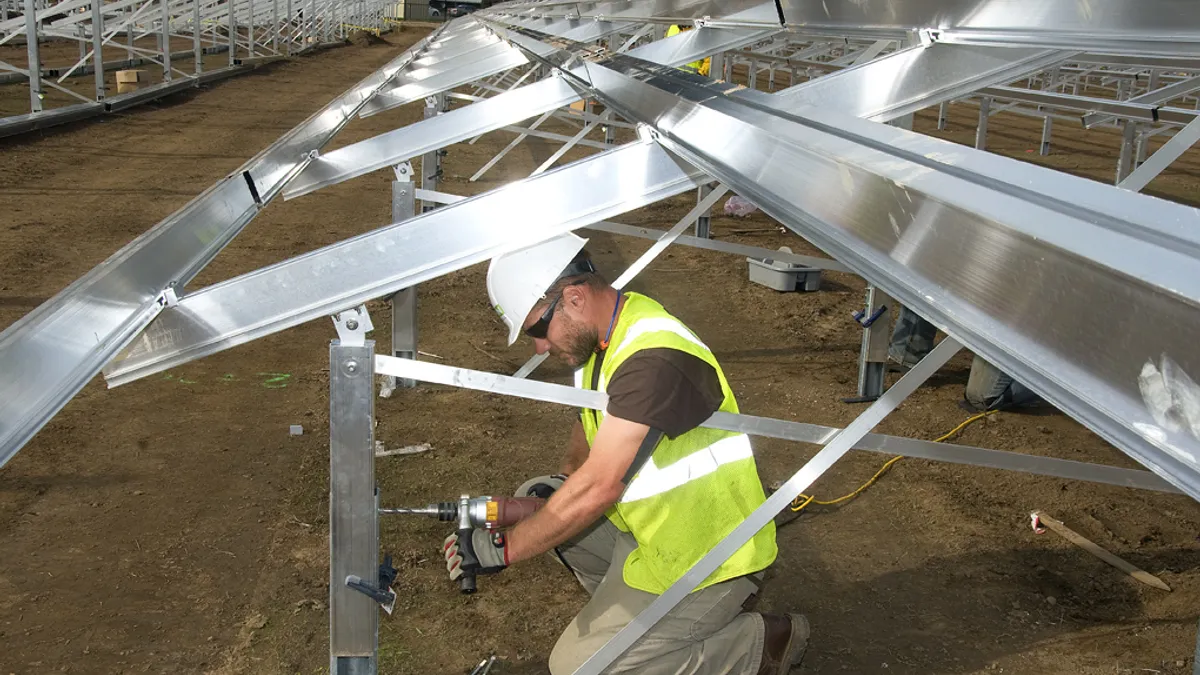Dive Brief:
- Two key state solar incentive packages in Massachusetts face an uncertain future as they approach legislative limits set on their programs, the Boston Globe reports.
- The Massachusetts solar renewable energy certificate (SREC) program closed this week. It provided a return to rooftop solar owners who allowed the state’s utilities to apply their rooftop generation toward the state renewables mandate. About 1,000 MW of SREC capacity is built but the full 1,600 MW legislative allotment is subscribed.
- The other vital support to the solar value proposition in Massachusetts is about to be closed off. The 4% to 5% of peak load limit on the state’s net energy metering (NEM) program was reached in the territory of National Grid, the state’s dominant electricity provider, and will soon be reached in other utility territories.
Dive Insight:
Residential solar is exempt from both caps on the NEM and SREC programs, which will allow some solar activity to continue, but Massachusetts solar builders are largely left in limbo.
“The industry’s on hold, basically,” John DeVillars, managing principal at Boston solar developer BlueWave Capital told the Globe. “Until there’s clarity on the next incentive program, very little activity will take place.”
NEM provides a bill credit to solar owners for the solar energy-generated electricity their systems send to the grid. Advocates argue solar stabilizes the system, reduces emissions, is becoming more cost-effective, and is growing the state’s economy and jobs.
The Massachusetts Senate last year adopted amendment 18 to SB 1973, which would have doubled the current NEM cap to 1,600 MW. But Senators were unable to compromise with House lawmakers who want more than a 70% reduction in the NEM credit amount.
The House proposal would have, after the state’s installed capacity reached 1,600 MW, reduced the retail rate credit to about $0.05/kWh, about a 71% cut.
Utilities, including Eversource Energy and National Grid, and business groups, including Associated Industries of Massachusetts (AIM), argue SRECs and NEM credits shift costs for system maintenance to non-solar owners because solar allows its owners to pay lower bills yet they continue to rely on the grid. AIM claims the average homeowner paid $83 extra in 2015 to support solar and the typical manufacturer paid $750,000 extra.














